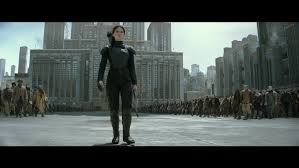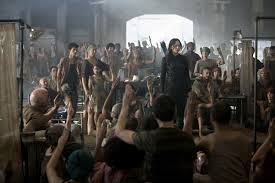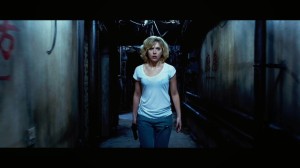NO MORE FUN AND HUNGER GAMES: The Hunger Games: Mockingjay – Part 2
Posted: December 7, 2015 | Author: Donald | Filed under: Uncategorized | Tags: Danny Strong, Donald Sutherland, Francis Lawrence, Jennifer Lawrence, Julianne Moore, Mockingjay, Peter Craig, Philip Seymour Hoffman, Suzanne Collins, The Hunger Games | 2 Comments »First, a word from our sponsors: I am now offering a new service: so much emphasis has been given lately to the importance of the opening of your screenplay, I now offer coverage for the first twenty pages at the cost of $20.00. For those who don’t want to have full coverage on their screenplay at this time, but want to know how well their script is working with the opening pages, this is perfect for you. I’ll help you not lose the reader on page one.
Ever wonder what a reader for a contest or agency thinks when he reads your screenplay? Check out my new e-book published on Amazon: Rantings and Ravings of a Screenplay Reader, including my series of essays, What I Learned Reading for Contests This Year, and my film reviews of 2013. Only $2.99. http://ow.ly/xN31r
and check out my Script Consultation Services: http://ow.ly/HPxKE
Warning: SPOILERS
 At the end of The Hunger Games: Mockingjay – Part 1, I was left with one burning question: was Alma Coin, leader of the revolution, trying to bring freedom to the land, or was she only seeking power?
At the end of The Hunger Games: Mockingjay – Part 1, I was left with one burning question: was Alma Coin, leader of the revolution, trying to bring freedom to the land, or was she only seeking power?
Well, I have now seen The Hunger Games: Mockingjay – Part 2 and I have my answer.
And no, I’m not going to tell you because it leads to one of the most satisfying climactic scenes in movies for a while.
Of course, I should start off by saying that there is no way I will admit that The Hunger Games is great filmmaking. It certainly has a myriad of faults.
At the same time, I have found this franchise to be more intellectually intriguing, even fascinating, than others like it. There has always been something about the stories that stayed with me, something buried (a bit too much, I believe, at times) at the core of it. For me, The Hunger Games has always been a complex study of how a revolution begins, builds and bursts forth upon the land combined with the crowd pleasing wrappings of a commercial aesthetic.
It’s certainly no Lord of the Rings or Game of Thrones. Yet, I find it more rewarding than Harry Potter if for no other reason than half the time I never quite new where the story was going when it came to Hogwarts and environs (especially in the last entry which, in spite of being split into two films, I’m not convinced it ultimately made a lot of sense). Read the rest of this entry »
NO MORE FUN AND HUNGER GAMES or THE REVOLUTION WILL BE TELEVISED: Movie review of The Hunger Games: Mockingjay-Part I by Howard Casner
Posted: November 28, 2014 | Author: Donald | Filed under: Uncategorized | Tags: Danny Strong, Donald Sutherland, Elizabeth Banks, Francis Lawrence, Jeffrey Wright, Jennifer Lawrence, Josh Hutcherson, Julianne Moore, Liam Helmsworth, Peter Craig, Philip Seymour Hoffman, Stanley Tucci, Suzanne Collins, The Hunger Games: Mockingjay-Part I, Woody Harrelson | 8 Comments »First, a word from our sponsors. Ever wonder what a reader for a contest or agency thinks when he reads your screenplay? Check out my new e-book published on Amazon: Rantings and Ravings of a Screenplay Reader, including my series of essays, What I Learned Reading for Contests This Year, and my film reviews of 2013. Only $2.99. http://ow.ly/xN31r
Warning: SPOILERS
 Okay.
Okay.
How to start.
Well, there’s really no point in putting it off.
At the risk of losing what little reputation I have (if I even have one); at the risk of inviting ridicule, derision, mockery and scorn from those who read my reviews who don’t already hold me in ridicule, derision, mockery and scorn; and at the risk of being reviled by serious filmgoers far and wide…
The Hunger Games: Mockingjay-Part I is not nearly as bad as the critics claim it is and is by far the best entry in the franchise to date, far better than the first two films. Read the rest of this entry »
A STUDY IN SCARLET and TALES OF HOFFMAN: Movie reviews of Lucy and A Most Wanted Man by Howard Casner
Posted: August 4, 2014 | Author: Donald | Filed under: Uncategorized | Tags: A Most Wanted Man, Amr Waked, Andrew Bovell, Anton Corbijin, Daniel Bruhl, Homayoun Ershadi, John Le Carre, Luc Besson, Lucy, Min-sik Choi, Morgan Freeman, Nina Hoss, Philip Seymour Hoffman, Rachel McAdams, Robin Wright, Scarlett Johansson, Willem Dafoe | 2 Comments »First, a word from our sponsors. Ever wonder what a reader for a contest or agency thinks when he reads your screenplay? Check out my new e-book published on Amazon: Rantings and Ravings of a Screenplay Reader, including my series of essays, What I Learned Reading for Contests This Year, and my film reviews of 2013. Only $2.99. http://ow.ly/xN31r
Warning: SPOILERS
 Ricky Ricardo: Lucy’s actin’ crazy. Fred Mertz: Crazy for Lucy, or crazy for ordinary people?
Ricky Ricardo: Lucy’s actin’ crazy. Fred Mertz: Crazy for Lucy, or crazy for ordinary people?
I Love Lucy
First, I must begin by being absolutely clear so that everyone knows where I stand. Lucy, the new sci-fi thriller written and directed by French filmmaker (and some people use that term loosely in this context) Luc Besson is a terrible film.
I mean, c’mon. You know it. I know it. We all know it’s terrible. It’s silly, nonsensical, preposterous, absurd, often makes no sense and is not remotely believable, even for an unrealistic fantasy sci-fi thriller.
Which is also, in m any ways, a redundant way to state it because, well, gees, I mean, c’mon, it’s a Besson film, for Christ’s sake.
But with that being said, it may very well be a…dare I say it…I dare…great terrible movie. Read the rest of this entry »
Movie Review for THE MASTER by Howard Casner
Posted: September 23, 2012 | Author: Donald | Filed under: Uncategorized | Tags: Amy Adams, Amy Wells, Christopher Evan Welch, David Crank, Jack Fisk, Joaquin Phoenix, Mark Bridges, Mihai Malaimare Jr., Patty McCormack, Paul Thomas Anderson, Philip Seymour Hoffman, The Master | 1,328 Comments »I am quite convinced that Paul Thomas Anderson, the writer and director of the new sorta controversial film The Master (sorta because in the end, the controversy surprisingly didn’t revolve around whether it was or wasn’t a story about Scientology, but whether it was any good or not) fully understands his movie and everything that happens in it. Unfortunately, if I’m going to be completely honest here, I didn’t understand anything in it.
The basic plot is about the intersection of two men, broken down alcoholic Freddie Quell (played by Joaquin Phoenix, giving it his all), and the leader of a cult in its infancy Lancaster Dodd (played by Philip Seymour Hoffman, who isn’t quite as effective). But it’s this intersection that is the main issue for me and the reason the movie never quite got off the ground: these two men who become absolutely fascinated with each other (to a homoerotic degree), but without any convincing reason for it. It all begins when Quell makes his drunken stupor way onto Dodd’s boat and instead of being thrown into the brink, Dodd takes Quell under his wing. Why? I haven’t the faintest idea. And why does Quell stay? Well, other than free room and board and the ability to make his bootleg whiskey with the approval of Dodd, I also haven’t the faintest idea. And without clear and understandable reasons, or at least convincing ones, I’m not sure that this story can ever really work.
Phoenix plays his role with a stooped and nearly hunchbacked set of shoulders and a distinct (or often, indistinct) mumble. Like Anderson and the film, I’m not sure what Phoenix is trying to do here, but in many ways, I think Phoenix is at least doing it rather brilliantly. Quell is sexually obsessed, seeing erotic possibilities in everything (from standard Rorschach tests to a somewhat bizarre scene at a private home where Dodd sings “I Will Go No More a Roving” where, from Quell’s perspective, all the women are naked—well, Amy Adams is sorta naked—she presents herself rather modestly, but that’s what three Oscar nominations and a strong agent can do for you). What may be hard to believe is that women go ga-ga over him when there are much better looking men around. If his character made sense, then his performance might be much more memorable. But there are times when it seems he’s do the ultra-method approach to cover up that there is something lacking on the page.
Hoffman has a different issue and here, for me, Anderson makes the same mistake he made in There Will be Blood when he cast Paul Dano as an up and coming preacher of national repute. It was impossible for me to believe that thin-voiced, scrawny Dano could ever become a Billy Sunday and I still claim that only people who have never seen a preacher at a revival service could think so. In the same way, Dodd is supposed to be the leader of a cult about to go big. But Hoffman, who is one of our finest character actors (a modern day Charles Laughton in many ways), shows almost no charisma and gives no indication as to why his character would be able to attract anyone to his beliefs.
The rest of the cast get the job done. Amy Adams has moments here and there, but like the rest of the actors, she seems a bit lost as to what is driving her character. In the end, the best performance is probably given by Christopher Evan Welch as a doubter who questions Dodd at a party scene—but in his defense, he has the best written part.
Even the cult that Dodd’s creating doesn’t feel all that impressive or seems that well thought out. The most interesting aspect of it is a series of questions Dodd asks Quell that forces Quell to confront something about himself that is unpleasant (this is the only scene that indicates that Dodd might be more than the man behind the curtain). The least interesting aspect of the cult seems based on a basic past life regression belief (certainly an effective approach to attracting believers, since many cults have been built around reincarnation, but not particularly original or exciting). The most puzzling aspect is a series of strange exercises that Quell is put through in order to help him break away from whatever it is that is holding him back—but since these exercises make no sense and seem arbitrary (which may be the point, but I don’t really know, which is the main issue I have with the movie), they don’t really connect (and go on forever—the food is terrible, but such large servings punch line).
The strongest parts of the film are the technical aspects. It’s beautifully shot, the cinematographer (Mihai Malaimare, Jr.) capturing a stark beauty of the post war world. The sets (production design by David Crank and Jack Fisk and set decoration by Amy Wells) give a haunting period feel and make us regret that so much of this architecture is being lost. But perhaps most impressive are the costumes by Mark Bridges that make full use of what is perhaps the strongest line of design in American history for both men and women (and these are perhaps some of the best tailored outfits I’ve seen in a movie for some time).
I admire Anderson and have loved such films as Hard Eight, Magnolia, Boogie Nights and Punch-Drunk Love (though only half of There Will Be Blood). He is one of our finest filmmakers. But in the end, for me, The Master was basically Elmer Gantry but without Elmer Gantry or Sister Sharon Falconer, perhaps not the best approach.
P.S. For those trivia lovers out there, that’s Patty McCormack, the bad seed from The Bad Seed, as Mildred Drummond.











